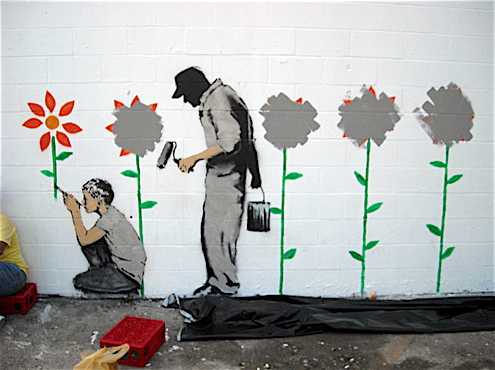Got change? Want change? Spare some and get some by becoming a member of rabble.ca today.
While we are all feeling the beautiful power of a youth-driven Maple Spring, I have the urge to gaze deeper into the world of youth activism and explore its various motivations and challenges, better enabling us to keep this flame burning into the future.
We’re doing things differently now. I don’t need to tell you that we’re living in an increasingly digitized world, and that this has enhanced our organizing methods. We have the capacity to engage in politics of the online dimension in a way that grabs the attention of thousands within seconds. And yet, even though our mechanisms for activism are arguably more advanced than the generations before us, we still drop like flies at times.
Activism takes its toll
The disproportionate level of burnout faced by younger activists, and the overwhelming silence around mental health and activism, is worrisome. How often does a friend of yours seemingly just disappear for weeks on end and disassociate themselves due to the level of stress we put on each other and on ourselves? How often have you done the same? I’ve had friends and comrades enter my social circle only to disappear into the protester Bermuda Triangle before I could even figure out why they had stopped attending events.
It’s hard work dedicating our lives to improving this planet and fighting against systemically hazardous ideologies. And sometimes it takes its toll. Sometimes you don’t want to get out of bed. And sometimes when you do, you feel an entrenched pressure to take on everything -postering, emailing, designing, leafleting, call-outs, Facebook events, making signs, etc. – to the point where you’re exasperated and temporarily experiencing amnesia about why it is you do what you do.
It’s a life lesson in general to set up boundaries and recognize when to say “No,” but in activism, since there’s so much riding on it, it seems that balance is harder to reach.
Why is this activist fatigue more prevalent in the youth demographic? Is it because the imprecisely proclaimed “me” generation is too preoccupied with hipster fashion to focus on coalition building? I don’t think so.
I discussed some of these questions in an online interview with Jacqueline Kennelly, author of Citizen Youth: Culture, Activism and Agency in a Neo-liberal Era and a veteran activist who has been very involved with the next generation.
“Young people get involved with activism and are excited and energized by the promises it holds,” Kennelly explained. “As they get drawn further in, they start to suffer from some of the unsustainable practices…the unbearable pressure of too much to do with too little resources, the lack of wider support, the misunderstanding and misrepresentation from wider society.”
It seems to me that making it through the first round of disillusionment seems like a precursor to the challenges that lie ahead. And the challenges of activism are often emotionally charged.
Mental health and reconnecting to life
I asked for Kennelly about the minimal level of dialogue on this side of activism, and how it connects with mental health.
“More effort could be made collectively to acknowledge the role of burnout and support one another in it. But the problem is that having the kind of energy to do that means not being burnt out in the first place!”
One example of this type of organizing Kennelly provided was the ‘Reconnecting to Life’ workshop put on by B.C. activists Maggie Ziegler and Jackie Larkin, who have “been working for many years to provide activists with spaces to recover and regroup and link back their energy.”
Kennelly noted that seeking out and developing long-lasting support systems is important, vitally important, in reinforcing the health of community members. If we notice we’re disillusioned or if we notice we’re in despair, it’s essential to talk about it. So if it’s come to your attention that all of your organizing friends have been MIA for weeks, scrap that forum and have a potluck dinner and reflection session instead!
I finally realize how accurate the ‘personal is political’ mantra truly is. If we can’t work on the health of our communities and ourselves, then we can’t work on sustaining a healthy planet.
And let me take a second to state my recognition that it can be a token of privilege to be ‘burnt out.’ When your life isn’t dependent on overcoming countless systemic oppressions and barriers, you have more opportunity to take a breather – the breather it seems we all need sometimes.
When it comes down to it, we have reason to have all the hope in the world that we can win, here in our own Maple Spring and elsewhere. The evolution of the left, influenced by the younger generation, is quickly coming to recognize the interconnectedness of all issues and movements.
Movements just like Occupy and the Canadian Maple Spring point to our vision of organizing – non-hierarchal and in pursuit of consensus-based decision making.
Our only task now is to ensure that we don’t let the overwhelming pressure that trying to change the world entails bring us to a halt. Breaking the silence about our emotional defeats, and not letting them hinder us, is one tool that will help us win.
Tania Ehret recently joined rabble as a contributing editor. She’s been involved in all sorts of fun organizing around Vancouver, from participation in the anti-war movement to opposition to the Enbridge Pipeline. She finished Langara College in Peace and Conflict Studies and has had reports published in Socialist Worker. She believes deeply in melding the worlds of social justice and multimedia/arts, making activism accessible to as many people as possible.



